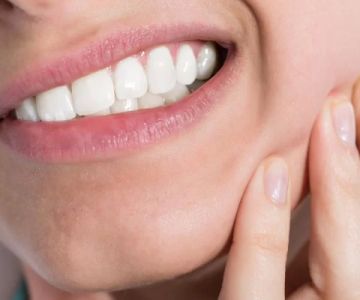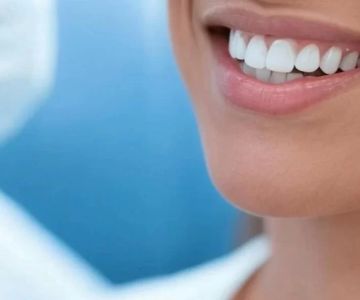Understanding Teeth Grinding During Sleep
Teeth grinding, or bruxism, is a common condition that affects millions of people worldwide. Often occurring during sleep, bruxism can lead to dental damage, headaches, and other unpleasant symptoms. If you're experiencing teeth grinding at night, it's important to address the issue promptly to prevent long-term oral health problems. In this article, we'll explore the causes of teeth grinding, how to handle it, and offer practical solutions to prevent it from affecting your quality of life.
1. What Causes Teeth Grinding During Sleep?
Teeth grinding, or bruxism, can happen for a variety of reasons. The most common cause is stress or anxiety, where individuals grind their teeth in response to emotional tension. However, there are other potential causes such as sleep disorders, misaligned teeth, or even certain medications. Identifying the underlying cause of your teeth grinding is the first step in determining the best treatment options for your situation.
Stress-related teeth grinding often occurs unconsciously during sleep, as the body reacts to stressors from daily life. Sleep apnea, a condition where breathing is interrupted during sleep, can also increase the likelihood of teeth grinding. Some individuals may grind their teeth as a result of misaligned teeth or an abnormal bite, which puts excess pressure on the jaw and teeth.
2. How to Recognize Teeth Grinding Symptoms
Recognizing the symptoms of teeth grinding is crucial for early intervention. Many people with bruxism are unaware that they grind their teeth at night, as the condition typically occurs during deep sleep stages. However, there are signs to look out for:
- Worn or Flattened Teeth: One of the most obvious signs of teeth grinding is the visible wear on the surface of your teeth. If you notice your teeth are becoming flatter or chipped, it may be due to grinding.
- Jaw Pain or Tightness: Grinding your teeth can strain the jaw muscles, leading to discomfort, soreness, or stiffness in the jaw area.
- Headaches: Morning headaches are common among those who grind their teeth during sleep, often due to the tension in the jaw muscles.
- Tooth Sensitivity: As the enamel wears down from grinding, teeth may become more sensitive to hot and cold temperatures.
3. How to Handle Teeth Grinding: Treatment Options
If you're dealing with teeth grinding, there are several treatment options available to help alleviate the condition and prevent further damage to your teeth.
1. Use a Mouthguard
One of the most effective ways to protect your teeth from grinding is by wearing a custom-made mouthguard. A mouthguard acts as a barrier between your teeth, preventing them from coming into direct contact while you sleep. Your dentist can create a custom mouthguard that fits perfectly to your teeth and jaw, providing protection against the pressure caused by grinding.
2. Stress Management Techniques
Since stress and anxiety are common causes of teeth grinding, practicing stress-relief techniques can be beneficial. Regular exercise, meditation, deep-breathing exercises, and yoga are all effective ways to reduce stress levels and improve sleep quality. Reducing stress during the day can help prevent nighttime bruxism.
3. Address Sleep Disorders
If you have a sleep disorder such as sleep apnea, treating the underlying condition can help reduce teeth grinding. Using a CPAP machine for sleep apnea or seeking treatment for other sleep-related disorders can improve your sleep quality and reduce the likelihood of grinding your teeth at night.
4. Correcting Teeth Alignment
In cases where misaligned teeth or an abnormal bite is the cause of teeth grinding, orthodontic treatment may be necessary. Braces or other dental procedures can help align your teeth properly, reducing the pressure on your jaw and minimizing the occurrence of grinding.
4. Lifestyle Changes to Help Prevent Teeth Grinding
In addition to the treatment options mentioned above, there are a few lifestyle changes you can make to help prevent teeth grinding:
- Avoid Stimulants: Avoiding caffeine, alcohol, and smoking, especially before bedtime, can reduce the chances of teeth grinding.
- Develop a Relaxing Bedtime Routine: Creating a calm and relaxing environment before bed can help you wind down and reduce the likelihood of grinding at night.
- Stay Hydrated: Dehydration can contribute to teeth grinding, so it's important to drink plenty of water throughout the day.
5. When to See a Dentist for Teeth Grinding
If you've been grinding your teeth for a while and are experiencing symptoms such as jaw pain, headaches, or worn teeth, it's time to see a dentist. A dental professional can examine your teeth and jaw to determine the extent of the damage and recommend the best course of treatment.
In some cases, your dentist may refer you to a specialist, such as a sleep therapist, orthodontist, or physical therapist, to address underlying issues that may be contributing to bruxism.
Conclusion: Taking Action Against Teeth Grinding
Teeth grinding can lead to significant dental damage and other health issues if left untreated. By recognizing the signs early, understanding the causes, and seeking appropriate treatment, you can prevent further harm and protect your oral health. Remember, wearing a mouthguard, managing stress, addressing sleep disorders, and making lifestyle changes are all effective strategies for handling bruxism.
If you're struggling with teeth grinding and need personalized guidance, it's essential to consult with your dentist. Together, you can develop a treatment plan that helps you stop grinding your teeth during sleep and protect your smile.







 Westgate Dental Arts
Westgate Dental Arts Coventry Family Dental
Coventry Family Dental Familia Dental
Familia Dental Dr. Daniel S. Fife, DDS
Dr. Daniel S. Fife, DDS Dentistry At Suburban Square: Michael I. Wollock, DMD
Dentistry At Suburban Square: Michael I. Wollock, DMD Comfort Care Dental
Comfort Care Dental The Importance of Oral Health Education During Pregnancy for a Healthy Pregnancy
The Importance of Oral Health Education During Pregnancy for a Healthy Pregnancy Why Skipping Dental Checkups Can Lead to Bigger Oral Health Problems
Why Skipping Dental Checkups Can Lead to Bigger Oral Health Problems Advantages of Porcelain Dental Restorations
Advantages of Porcelain Dental Restorations Best Tips for Brushing Your Teeth Properly for Healthy Gums: Essential Techniques for Oral Health
Best Tips for Brushing Your Teeth Properly for Healthy Gums: Essential Techniques for Oral Health How Can Diabetes Cause Tooth and Gum Problems? Preventing and Managing Oral Health Issues
How Can Diabetes Cause Tooth and Gum Problems? Preventing and Managing Oral Health Issues Healthy Habits for Promoting Good Oral Health and Hygiene: Tips for a Healthy Smile
Healthy Habits for Promoting Good Oral Health and Hygiene: Tips for a Healthy Smile